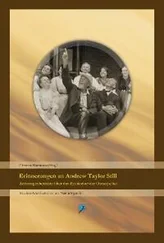All the time, he was becoming more familiar with the Arab way St Mary’s Church, Martlesham, Suffolk: ‘The atmosphere of the simple little church, its unimpeachable, unassuming Englishness and its dignified reserve, reflect one facet of his character.’ of life and culture, even though he had yet to learn more than a smattering of the language. The wild bedu, still largely unknown and untrusted, seemed to people an uncivilized world in which they made their own law, while on the desert fringes the hard-working farmers and traders eked out a living that seemed to have been unchanged for centuries. ‘These desert men lean to the civil life, and are such yeomen perhaps as Esau was. Other of their tribesmen I have seen, which are settled in tents, earing * the desert sand near Gaza; their plough is a sharpened stake, shod with iron, and one plough-camel draught …’ 42
But these industrious farmers, too, could turn on him in a moment. They distrusted foreigners and particularly those who, prying into ancient ruins, might prove to be spies. A European and a Christian in a strange land, either alone or with few companions, he was an easy target either for religious bigotry or simple banditry by farmers and nomads alike – the more so when he steadfastly refused to adopt a disguise or make up stories to justify his presence.
There had been his brush with the villagers around Petra; and there had been another incident south of Wadi Zerka when Doughty, sick and weak with his long travelling, was abandoned by his guide at a bedu encampment. At first he was well enough treated: the Arabs made at least a pretence of trying to find the guide who had deserted him, and gave him food and shelter. But they were moving on, they said, and after one night they delivered him to a second encampment.
There, Doughty found only women – and when the men returned later in the day, it was to threaten him, and demand a ransom in return for letting him go. It was a gross abuse of the laws of hospitality – but Doughty was becoming more skilled in the ways of handling the nomad tribesmen. First he protested that he had been given milk to drink by the women of the tribe, and should therefore be treated as a guest; and when that failed, he suggested that the leader of the group, Sheikh Faiz, should give him his horse in return for the ransom – one gift for another.
When Faiz’s mare was brought forward, though, he looked at it in disgust, and told the sheikh it was not even good enough to accept as a present. Faiz, presumably, was not particularly popular among the tribesmen; at any rate, they took Doughty’s side, and laughed at their leader’s discomfiture. Winning support with a pointed joke and a pained expression remained one of his favourite survival techniques.
He arrived in Damascus weary and sore. His six months in the deserts, the mountains and the wadis had been a completely different experience from anything that had gone before. Physically, it had been an exhausting and draining ordeal, struggling by camel and mule over some of the most inhospitable country in the world – but, more than that, he had been more alone, more exposed, than at any time in his life.
As well as his excitement at the prospect of finding the ruins of Medain Salih, he was finding aspects of daily life and culture among the Arabs that inspired his deep and lasting respect; but, for all his occasional sense of kinship with travellers who had gone before him, it was knowledge won against a background of remoteness and fear. In Europe, after all, he had been surrounded on his travels by the comforts and reassurances of a familiar way of life: even when he slept under the stars, it was within reach of people who shared his standards and values, people with whom he might enjoy a mutual understanding. When he trekked out into the desert of North Africa, it had been a brief excursion into a foreign land – and an excursion made still under a recognizable framework of European colonial law and authority.
Doughty may have lived as a poor traveller before, but it had been in a sympathetic world. His poverty, too, had been at least partly assumed – there had been times, as in Lisbon, where he could briefly drop back into the comfortable lifestyle of an Englishman of a certain class.
Here in the Bible lands he was isolated under the arbitrary and uncertain law of a cruel and largely hostile country, and travelling always on the fringes of what appeared to be a wasteland of lawless savagery. The familiarity which his biblical knowledge might have brought to the terrain often served simply to emphasize the gulf between the magnificence of the past and the squalid meanness of the reality. Physically and emotionally, Doughty remained a man alone.
There were, of course, occasions when he had been welcomed into the Arab tents, fed and entertained. The sheikhs who had killed sheep for him to eat and brought milk for him to drink might seem approachable, even welcoming. In the desert, though, and occasionally crossing his path threateningly, were the wandering bedu. He would learn more about them later – but for now they seemed to represent the very heart of darkness.
But if Doughty’s travels had revealed how terrifying life could become without the reassurance of the rule of law, Damascus showed how frustrating the rules and restrictions of officialdom could be. Doughty had been told in Maan that the Hadj caravan might lead him to Medain Salih; but in Damascus, when he asked the Wali, the Ottoman governor of Syria, for permission to accompany the pilgrims, he was fobbed off. The Wali asked the British consul, a career diplomat and Middle East specialist named Thomas Sampson Jago, for his advice, but the consul wanted nothing to do with Doughty or his impetuous plans. ‘He had as much regard of me, would I take such dangerous ways, as of his old hat. He … told me it was his duty to take no cognisance of my Arabian journey, lest he might hear any word of blame, if I miscarried.’ 43
The governor in Maan had refused to take responsibility; the Wali in Damascus had refused to take responsibility; and now the British consul was refusing to take responsibility. They hoped that this foolish and importunate Englishman would go away and forget his dangerous obsession with Medain Salih, but Doughty kept on pestering them. In what was no doubt another effort to brush him aside, the Wali told him that only an official firman or permit from the Sultan himself would gain him acceptance with the pilgrim train.
But the British consulate, through which he would normally have applied for such a document, had washed its hands of him: Doughty would have to find another mediator and, with barely two months to go before the pilgrims would be gathering to depart, there was no time to be lost.
He had already written to the British Association seeking support; now he would approach the Royal Geographical Society to make representations on his behalf. There were also pressing reasons to leave Damascus for a while – there had been an outbreak of cholera in the city, and the troubles of the Ottoman empire had led to rumblings of anti-Christian feeling among the Muslim population. In addition, Doughty had given his brother Henry an address in Vienna where a letter might be left for him to collect. By travelling back into Europe, he might at the same time gather welcome news from home, speed his own message to London on its way, and also avoid a disease-ridden and unfriendly city. Tired as he was, he set off through the north gate of the city, turning his back at least for a while on the Arab world.
It was another hard journey, and Doughty gives a full account of it in one of the few letters from him that have survived. Writing to his brother from the Hotel Wandl after he arrived in Vienna, he described the inhumanity shown by the Turks in the Balkans. ‘I saw all their tithes of corn rotting in the fields – the barbarous paschas will have money, and the poor wretches have none to give, and offer them in kind as usual,’ he wrote. Hundreds of miles of good land were unfilled: ‘The Bulgarians are a people of cultivators; but they have not dared hitherto to occupy the land, afraid of the ferocity of the old Turks.’ 44
Читать дальше












